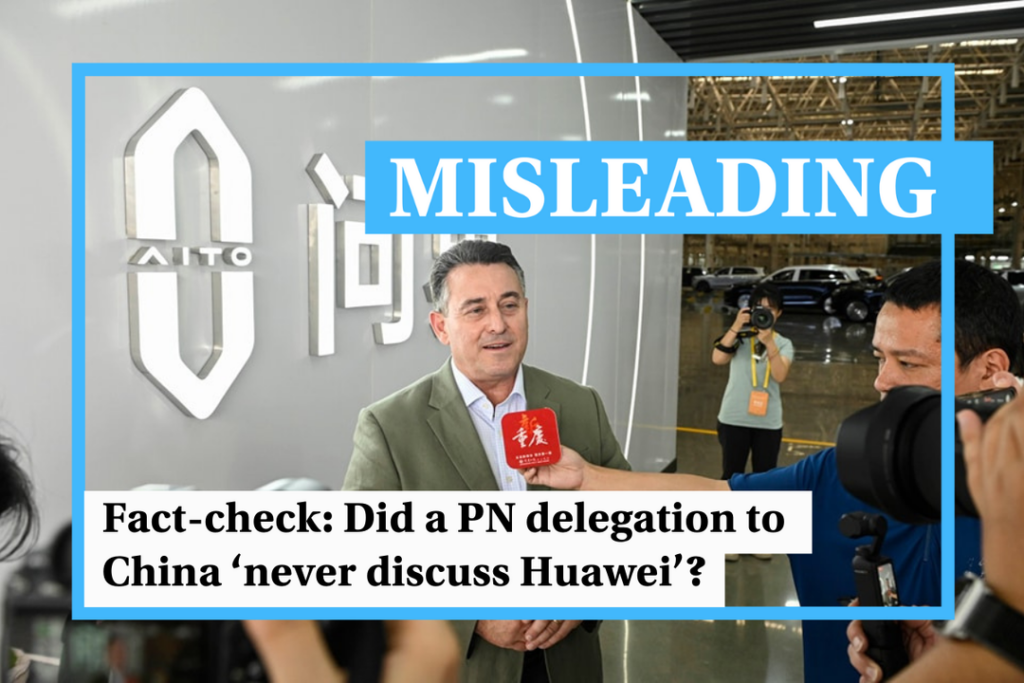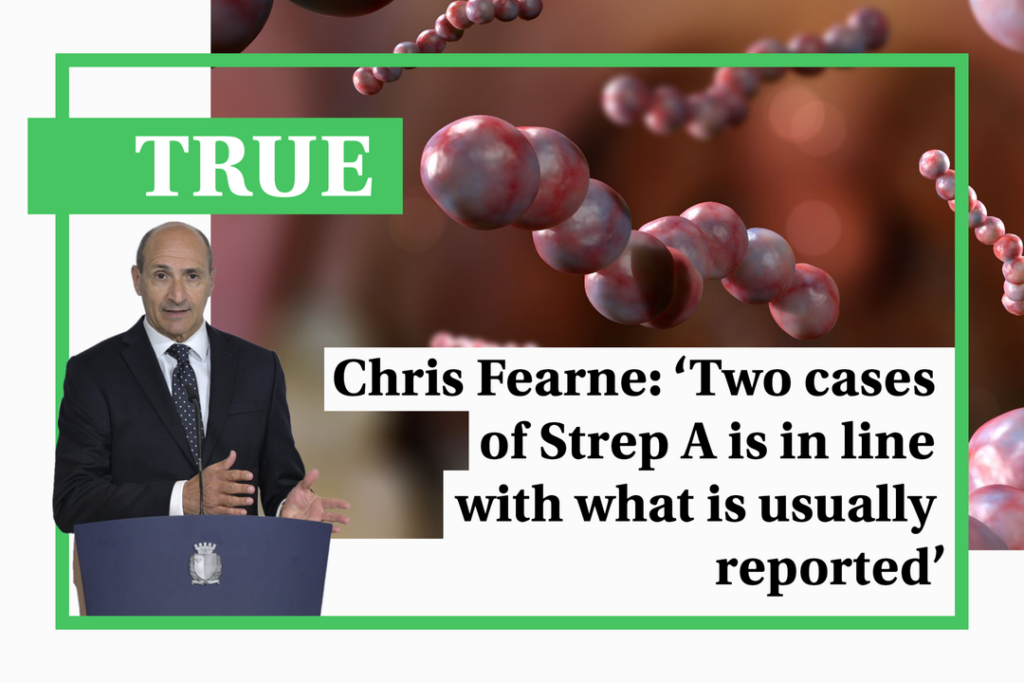The statement came after Grech was asked by a ONE News reporter whether he met with a Huawei representative during the visit. In his reply, Grech said he was “definitely not like what is being alleged in Daniel Attard’s case”.
Grech was referring to Labour Party MEP who, earlier in the month, said he was named in an investigation by Belgian police after he attended a football match at the Huawei company box in the Anderlecht stadium, in the company of a lobbyist.
Attard claimed he did not know that the invitation originated from Huawei, asking for his parliamentary immunity to be waived.
What was this China visit about?
In late April, a PN delegation comprised of leader Bernard Grech, his wife Anne Marie, foreign affairs shadow minister Beppe Fenech Adami, international secretary Beppe Galea and communications director Nathaniel Attard flew to China for a six-day visit at the invitation of the Chinese government.
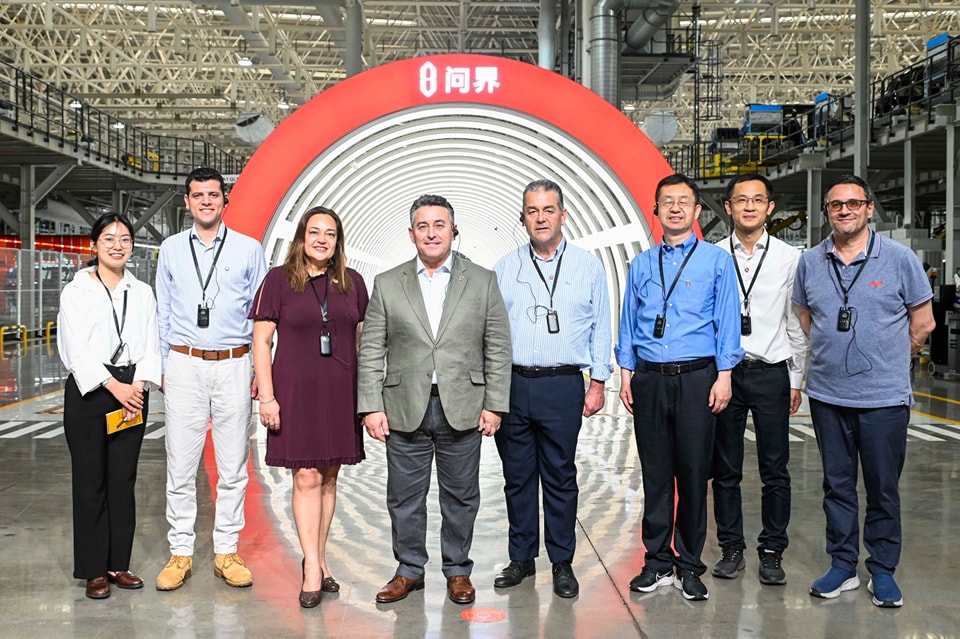
The party said the visit hoped to strengthen relations between Malta and China, as well as explore new opportunities for investment and cooperation between the two countries.
These sorts of trips are not unusual, with opposition delegations frequently travelling abroad to build new alliances and prepare themselves for an eventual role in government.
Did the delegation only meet politicians?
Not according to the party’s own description of the visit ahead of the trip.
In a statement published on 19 April, just days before the delegation departed, the party said the visit would include meetings with “various ministers and representatives from leading technological and commercial sectors”.
The statement is still available on the party’s website, although it does not appear in the website’s list of press releases, as is customarily the case.
Several social media posts by members of the delegation also confirm that the delegation visited industry players, amongst several other meetings with Chinese political officials.
Did the delegation meet Huawei?
The most contentious of these visits was to the state-of-the-art factory owned by the car manufacturer Seres in the city of Chongqing.
The visit was documented on Facebook, with both Grech and Beppe Galea posting pictures of the delegation at the factory.
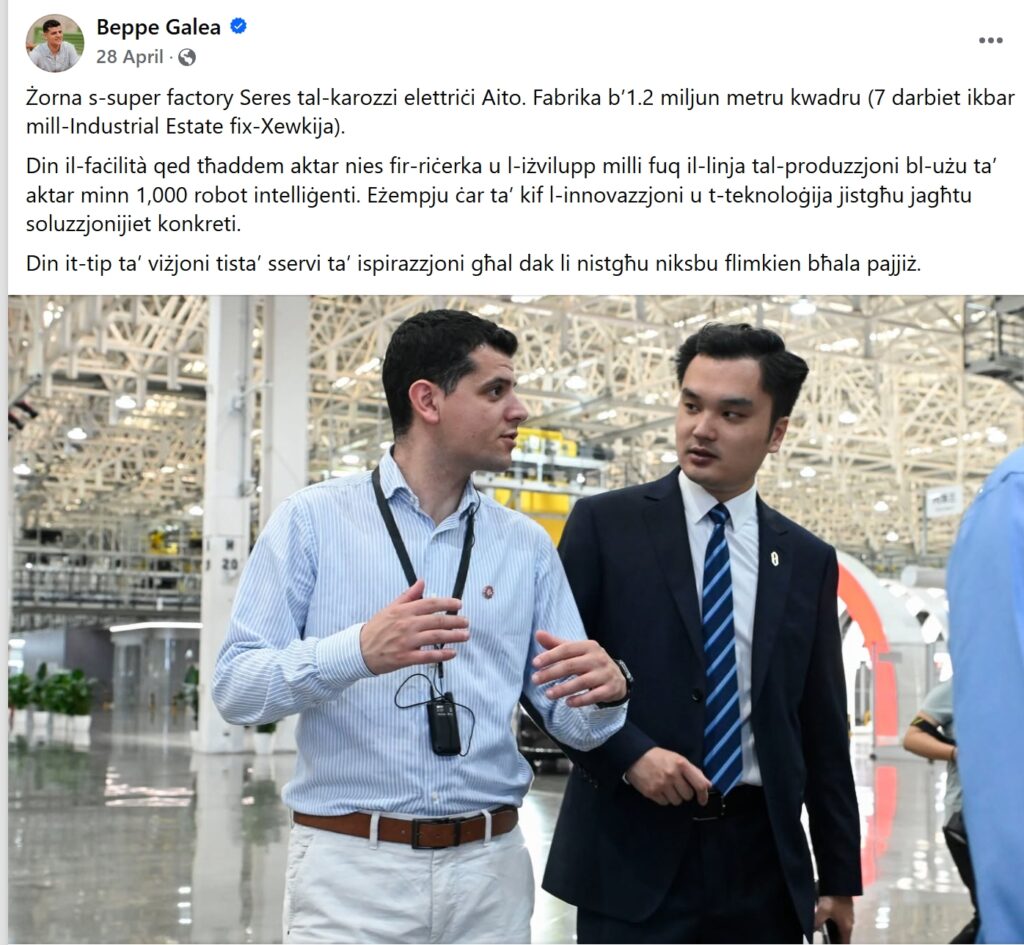
When asked about the visit to the Seres factory, a PN spokesperson told Times of Malta that the “Seres Group EV Super Factory does not belong to Huawei”.
This is true, although the relationship between the two companies is a little more complex than this would suggest.
Seres’ flagship line of electric vehicles goes by the name of AITO, a brand created jointly by Seres and Huawei.
In practice, AITO cars are manufactured by Seres, with Huawei designing and providing the cars’ tech features. These features are embedded in AITO cars, from Huawei’s signature HarmonyOS software which powers the cars’ user interface, to Huawei’s patented automated driving systems.
The cars, manufactured in the same Chongqing factory visited by the PN delegation, are then sold in Huawei’s flagship stores across China and marketed as Huawei cars.
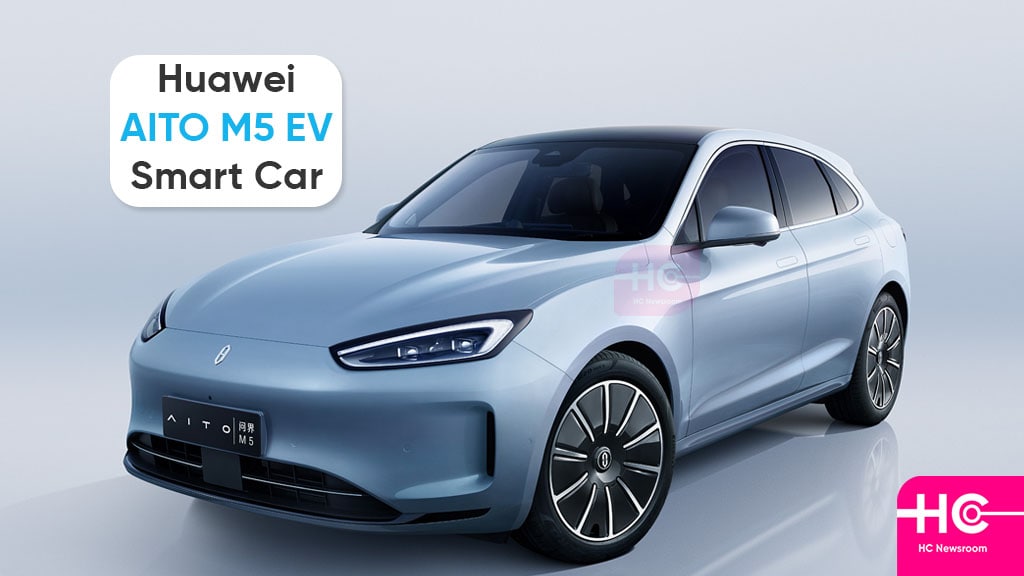
Online videos show how the Seres super factory, which vaunts state-of-the-art automation, is itself powered by Huawei data centre dubbed the “Super Brain”.
Things are slightly different in Europe, where Huawei has faced bans and restrictions in several countries due to security concerns.
European models often intentionally omit the Huawei branding altogether, instead selling the same cars under the Seres name. And rather than using Huawei’s software, some European versions of the cars revert to Google’s software to get around EU restrictions.
Would there be anything wrong with meeting Huawei, anyway?
Not necessarily and there is no suggestion of anything untoward in PN’s visit to the Seres factory.
Nevertheless, Huawei has come under increased scrutiny in recent years, with European lawmakers suspecting it of being a vehicle for Chinese state espionage.
Huawei has denied the accusations. However, this hasn’t stopped several countries, including France and Sweden, from banning Huawei products from their markets altogether.
Huawei was placed on an EU watch list in 2023 over concerns of espionage into EU institutions.
Things went a step further in March 2025, after an investigation by Belgian police led to Huawei lobbyists being banned from the European Parliament and European Commission.
‘Huawei was never discussed’: PN
When asked why PN claimed the delegation had “only met with politicians” despite photos showing the visit to the Seres car factory, a party spokesperson reiterated that “the delegation led by Dr Bernard Grech held meetings with political figures”.
“At no point did the PN attempt to hide in any way the meetings and visits held,” the spokesperson said, pointing to the social media posts and statements about the visit. The spokesperson added that “at no point were discussions held about Huawei and Huawei was never on the agenda”.
Verdict
While the PN delegation met several political figures during its April trip to China, it also visited the factory of Chinese car manufacturer Seres.
Although Seres and Huawei are separate companies, they are close collaborators, jointly designing and manufacturing cars which are sold under the Huawei AITO brand from Huawei’s flagship stores dotted around the country.
The claims that the delegation only met with politicians and never discussed Huawei is therefore misleading, as although the claim may, in itself, be partly or entirely true, it is presented in a manner that is not representative of the facts within a broader context.
The Times of Malta fact-checking service forms part of the Mediterranean Digital Media Observatory (MedDMO) and the European Digital Media Observatory (EDMO), an independent observatory with hubs across all 27 EU member states that is funded by the EU’s Digital Europe programme. Fact-checks are based on our code of principles.
Let us know what you would like us to fact-check, understand our ratings system or see our answers to Frequently Asked Questions about the service.
